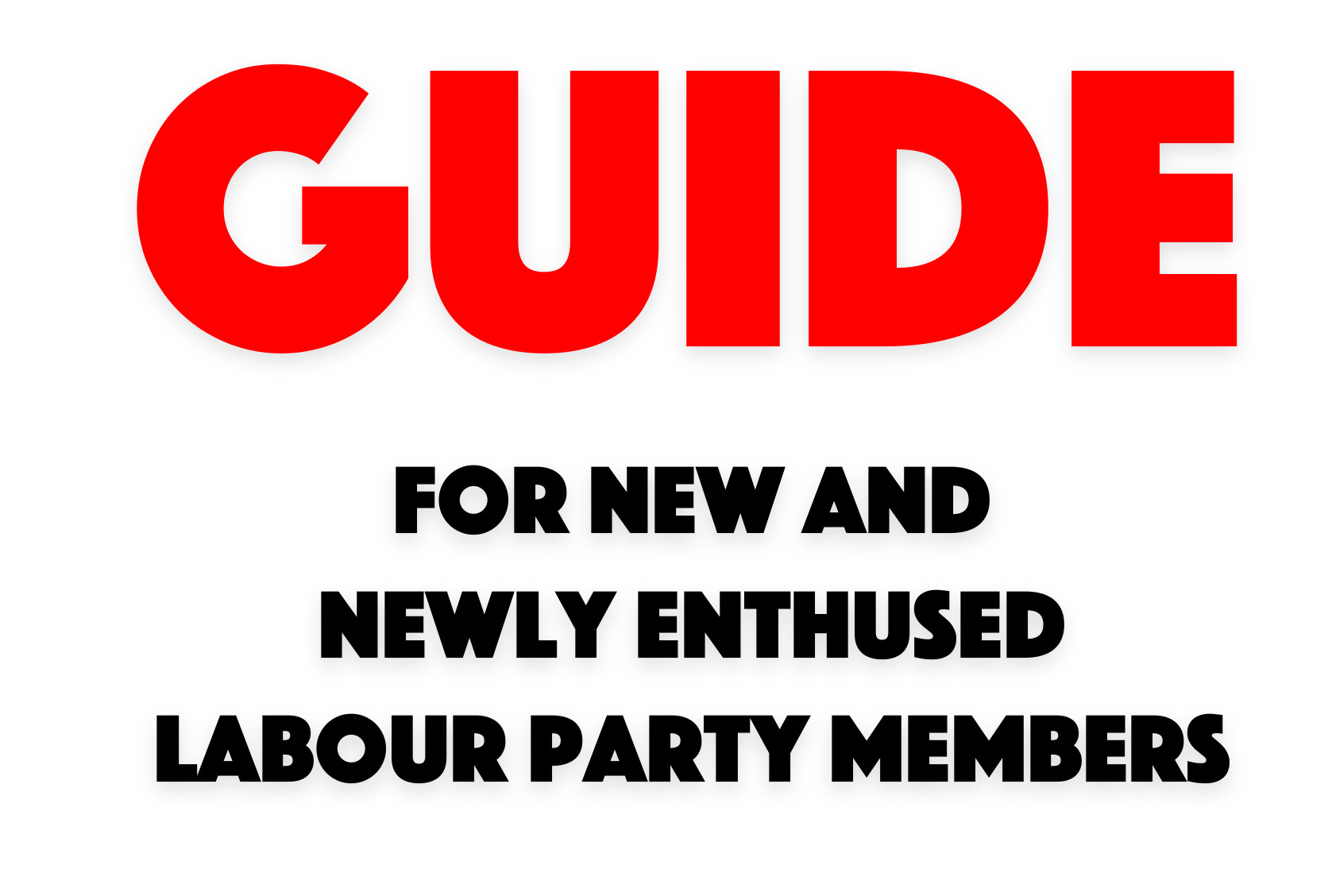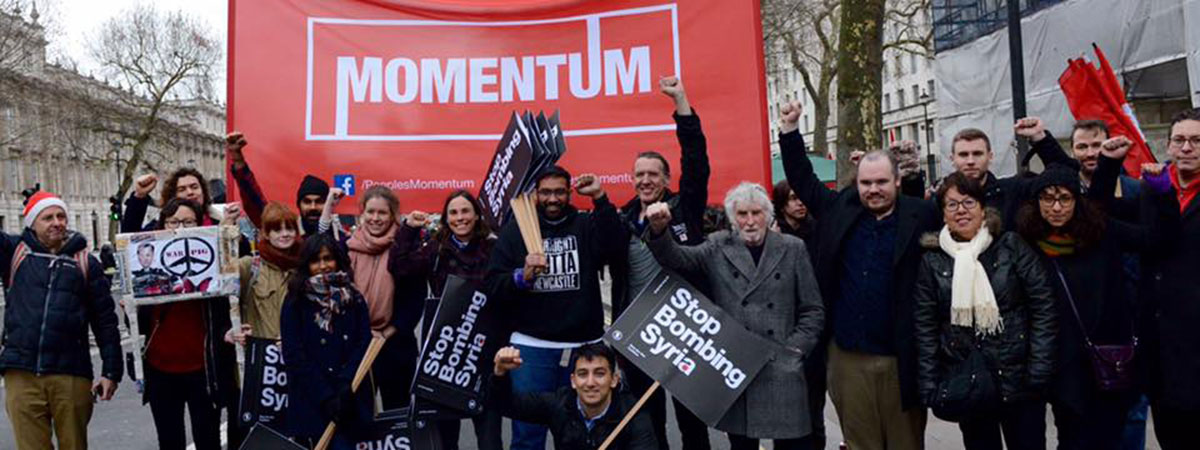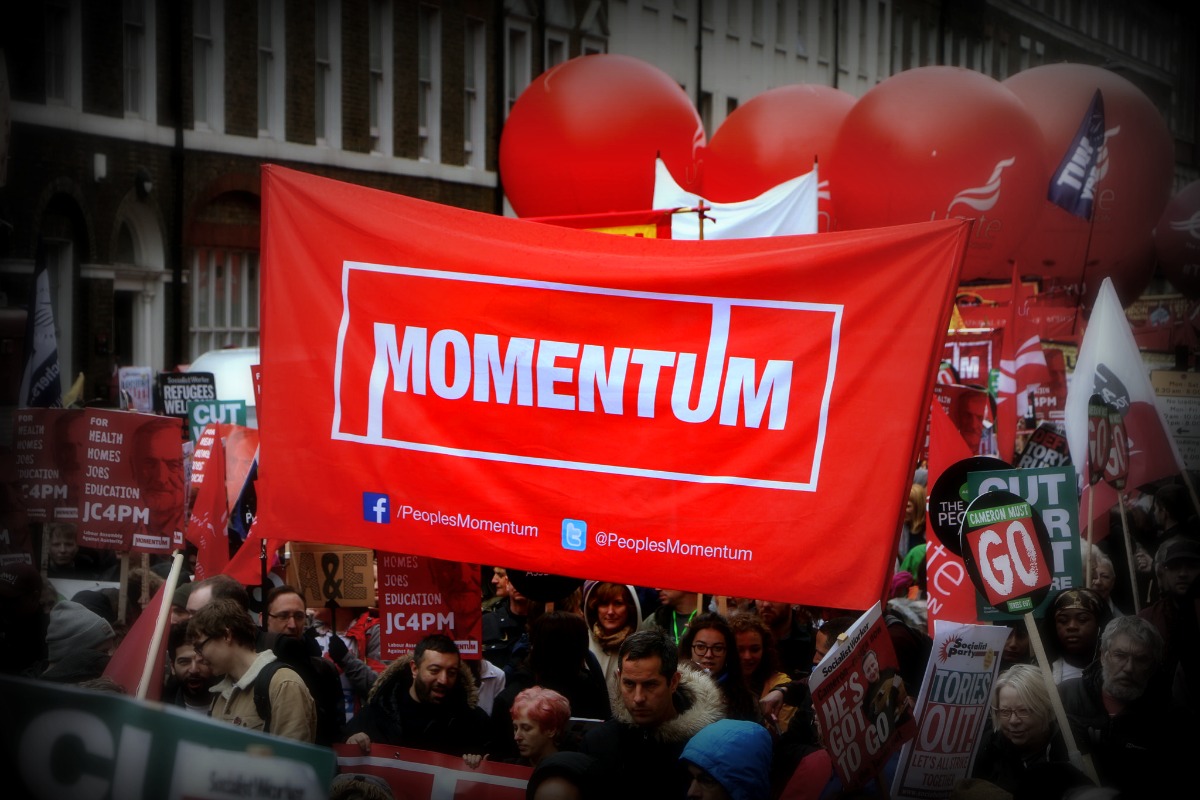Mike Macnair says referendums empower those above, not those below – as we just witnessed again in Momentum
Tim Stanley in The Daily Telegraph writes, apropos of Brexit and of the election of Donald Trump, that “The left are being sore losers and democracy is the poorer for it”. His objection is that, by failing to accept the result of these votes, “the left” is failing to “move on” to challenge the actual policy choices of Trump, and/or of the Brexiteers; so that “democracy” is “poorer”, both because there is insufficient ‘scrutiny’ of the winners’ policies and – more emphasised in his argument – because the tendency of the criticisms is, he says, to undermine the practice of having elections and votes at all.
Stanley’s argument is a defence of the devices by which capital turns universal suffrage into an ‘instrument of deception’. These devices have been so ostentatiously on display in 2016 that they can hardly be missed; and hence might, just possibly, be threatened with public revulsion, which would make ‘democracy’ poorer – meaning, make journos and their employers poorer. But, of course, much of the mainstream ‘left’ is perfectly willing to help out Stanley and his ilk in this matter. To characterise Trump, or the Brexiteers, as fascists or protofascists – as something unusual – is to divert attention from the routine in which journos’ lies fool enough people enough of the time to swing referendums and elections. And, moreover, part of the left positively supports the sort of plebiscitary politics which facilitates journo-fraud as an instrument of corruption.
This is the nature of Jon Lansman and his allies’ campaign for a referendum-based constitution for Momentum: a campaign which revealed its true nature by being carried out through ‘red scare’ witch-hunting in the advertising-funded media: a small-scale imitation of the techniques of the Blairites against Corbyn, and of the Trumpites and Brexiteers in mainstream politics.
The left
“The left” in the context of Stanley’s argument means, of course, the US Democrats, and the British Labour right and Lib Dem ‘remainers’, not anyone further left. Stanley might have noticed, if he bothered to, that the Corbyn camp’s position was ambiguous (complained of, indeed, by remainer journos and MPs) and that the main forces further left – the Morning Star’s Communist Party of Britain, the Socialist Workers Party and Socialist Party in England and Wales – were all advocates of ‘left exit’, so that from their point of view the Brexit vote was a victory. Here “the left” is a selective view of the left, meaning ‘the rightwing part of the left, which we rightwing journos are willing to regard as respectable’.
The plain dishonesty or self-serving self-deception in this selective identification of the target should alert us to the probable dishonesty or self-serving self-deception of the rest of the argument of the article. Perhaps more immediately to the present point, Labour Party Marxists, and hence this bulletin, did not wait until the ‘unpleasant’ (from a liberal point of view) results of the Brexit referendum and Trump’s election to complain of the fraudulent character of the referendum process, of the direct election of presidents, party leaders and so on.
We argued for an active boycott of the Brexit referendum on this basis. Our co-thinkers were already arguing against these Bonapartist operations in relation to the ‘Vote for the crook, not for the fascist’ presidential election in France in 2002. They argued, similarly, for a boycott of the Scottish independence referendum in 2014, on the basis that it offered a false choice. Such tactics in relation to all these challenges are open to debate; but our school of thought can hardly be accused of raising objections to the process as a sour-grapes response to results we didn’t (or don’t) like. Nor is this LPM position a novelty.
It is merely a matter of recovering the historic position of the labour movement against plebiscites/referenda, and against the elevation of single-person executive presidencies, as forms of the Bonapartism of Napoleon III (directly elected president of France 1848-52 and emperor 1852-1870). Napoleon III’s 1851 coup was endorsed by … a rapid referendum, followed by a second referendum in 1852 to make him emperor. It is against these methods that Marx and his co-authors argued in the Programme of the Parti Ouvrier that the creation of a workers’ party “must be pursued by all the means the proletariat has at its disposal, including universal suffrage, which will thus be transformed from the instrument of deception that it has been until now into an instrument of emancipation”. Similarly, that socialists sought to abolish the US presidency (like similar offices) was already a commonplace in 1893. Readers might also usefully look at Ben Lewis’s overview of Karl Kautsky’s 1893 Parliamentarism, direct legislation by the people and social democracy, and earlier this year Ben’s translation of extracts from Kautsky’s book. This argued at length against the idea of legislation by referendum.
Forgotten
The fact that this routine pre-1914 labour-movement understanding has been lost by the majority of the left results from two sets of ideas.
The first is that called by György Lukács the ‘actuality of the revolution’: the idea, posed by the early Communist International in 1919-22, that revolution was on the immediate agenda, and that this meant essentially the struggle for power, growing directly out of strike struggles, as opposed to any thought wasted on concrete constitutional arrangements. This was a reasonable interpretation of conditions at the end of World War I and immediately after, but was already becoming problematic by 1923.
The second is the concept of the ‘transitional method’ developed by post-1945 Trotskyists on the basis of the idea of a ‘transitional programme’, first posed at the Fourth Congress of the Comintern in 1922, then elaborated in the Transitional programme of the founding congress of the Trotskyists’ Fourth International in 1938.
While the ‘transitional programme’ had some substance to it, the ‘transitional method’ turns out to be merely an attempt to con the working class into taking power by avoiding talking about constitutional issues: a variant on the line of the Russian economists of the early 1900s. In this context, talk of the Lukácsian ‘actuality of the revolution’ and the recital by modern leftists of old leftist objections to pre-1914 socialist policy turn into pseudo-leftist alibis for a concrete policy which fails to challenge the existing constitutional order.
When people who think like this argue, like Socialist Resistance or the Alliance for Workers’ Liberty, for resistance to Trump or Trumpism, or to Brexit, they do indeed engage in sour-grapes reasoning – and, in addition, appear merely as the enraged wing of the liberals.
Old corruption
It is, however, more interesting that Stanley argues that criticisms of the electoral process will necessarily undermine the practice of holding elections, because the defects complained of are merely normal. “Have you ever known an election in which a politician didn’t fib? It’s up to voters to play detective …”
Back to the beginning. Stanley’s argument shows signs of either dishonesty or self-serving self-deception in the targets he selects as ‘the left’. We may reasonably infer that the rest of the argument is the same. But what is it defending? The underlying nature of his argument is not dissimilar to arguments made against electoral reform in the 19th century: for example, an opponent of banning candidates’ agents bribing voters complained in 1870 that, “Given that ‘free trade’ was otherwise ‘a principle of universal application’, why ‘affect a fastidious indignation at a political offence that poverty makes venial?’”
We can, of course, push this sort of thing further back. A close analogy with Stanley’s argument that voters should act as detectives is Mr Justice Grose’s conclusion in Pasley v Freeman (1789) that there should be no civil legal liability for causing loss by fraud in the absence of a contract between the parties, since “I believe there has been no time when men have not been constantly damnified by the fraudulent misrepresentations of others: and if such an action would have lain, there certainly has been, and will be, a plentiful source of litigation”; and that in the instant case “it is that sort of misrepresentation, the truth of which does not lie merely in the knowledge of the defendant, but may be inquired into, and the plaintiff is bound so to do; and he cannot recover a damage which he has suffered by his laches [carelessness].” (The argument was rejected by the majority of the judges.) Or Chief Justice Holt’s 1704 objection to criminal liability for fraud: “Shall we indict a man for making a fool of another?” (In this case the indictment was quashed. The conduct charged would now be covered by the Fraud Act 2006.)
Nonetheless, even when this sort of argument was commonplace, and buying votes was normal, the ‘voters play detective’ logic was not followed through fully. Sir John Trevor was sacked as Speaker of the House of Commons in 1695, when he was caught taking a large bribe from the City of London for facilitating legislation they wanted. Bribing voters was acceptable; fraud, of a sort which would be illegal in modern times, was on the edge of legality. But for the speaker of the House of Commons to take bribes was unacceptable – and so was, even earlier, for the Lord Chancellor to take bribes.
In other words, there are limits. Even suppose that you are a strong advocate of free markets and the idea that caveat emptor (let the buyer beware). Still, without some degree of bribe-free and manipulation-free decision-making, there can be neither legally binding contracts nor property rights among market actors. The real meaning of ‘anarcho-capitalism’ is warlordism, in the style of Afghanistan or Somalia. Over time, the limits have shifted. In the 19th century, in particular, there was a major shift against ‘Old corruption’; one which in the later 19th century, both in England and the US, produced institutional steps against vote-buying.
It is clear enough that these steps were linked to other institutional changes of the period, which involved most famously the extension of the franchise. Less famously a process of professionalisation of the state apparatus, which actually involved its proletarianisation: that is, that public office ceased to be a marketable asset (‘offices of profit under the Crown’, the sale and purchase of commissions in the army, and so on) and became instead mere employments, with the state official as an employee limited to a wage (salary). It is common on the left to regard the changes made at this time either as mere technical ‘modernisation’ (following Weber, perhaps by way of Lukács); or as ‘bourgeois democracy’ on the supposition that the capitalist class is inherently ‘democratic’.
The error is the supposition that ‘Old corruption’ was feudal – an error encouraged by 19th century radicals’ own interpretation of it. It is clear, however, that capitalist groups down to the early 20th century preferred restrictive franchises and co-optative systems of self-perpetuating oligarchy; a form of governance which continues to this day in the City of London, for example. The partial suppression of certain open forms of corruption, together with the extended franchise and the partial proletarianisation of the state apparatus, reflected partial concessions to the proletariat as a class, in response to the political threats faced by capital around 1848 and again in the 1860s.
Once we see this, we can also see that, while the boundary of unacceptable ‘corruption’ moved outward in the later 19th century, what continues is a regime of corruption and electoral fraud under limits – not one of the actual elimination of corruption. Actually to eliminate corruption and fraud would be to destroy the underlying Burkean conception of the state as a ‘joint stock’, a quasi-corporation owned by its ‘shareholders’, the property-owners, in proportion to their wealth. If anything, the acceptance of extended suffrage (ultimately and currently, universal adult suffrage) requires more means of control both of the electoral system, and external to it.
Fraud
There are a variety of such means. But one central aspect is the role of advertising-funded media as engines of electoral fraud. It is a marked feature of writers in the advertising-funded media to deny the influence of its own fraudulent misrepresentations when – as now – the legitimacy of this influence is called into question. But when the papers, and so on, are selling advertising space, a very different story will be told. And the same is true when efforts are being made to persuade the leaders of political parties that they cannot realistically ‘go up against’ the media, or are doomed to defeat if they do so.
To sell advertising space, or to back up advocates of ‘better media relations’, the story told is one of the great power of advertising and media. In reality, the story is neither one of feeble illusions that anyone can see through – the voters effectively playing detective – nor one of omnipowerful media controlling completely the terms of ‘discourse’. Consider, for example, the Brexit referendum result – 17,410,742 or 51.9% for ‘leave’, 16,141,241 or 48.1% for ‘remain’. Or the US presidential election: 62,979,636 or 46% for Trump-Pence, 65,844,610 or 48% for Clinton-Caine, with 6% given to third-party candidates and the votes distributed in such a way that the popular plurality for the Democrat ticket nonetheless produced a clear electoral college majority for Trump.
In neither of these cases – and in no recent British general election – is it necessary to fool all the people all the time, or even to fool a majority. It is only necessary to fool a small minority of people, the ‘swing voters’, for a small period of time – the immediate run-up to an election or referendum.
Sign up now!
How does it work? A large part of the doorstep conman’s or other fraudster’s trick is to reduce the information available to the mark. The primary fraudulent misrepresentations are expected to crowd out other information, less attractively presented, which might conflict with them; but also pressure is put on to ‘close the deal’ before the mark has had an opportunity to rethink. It is precisely for this reason that consumer protection regulation against these forms of fraud, primarily the Consumer Credit Acts, impose cooling-off periods during which the consumer can back off from the deal which has been pressure-sold to them.
Electoral fraud works in the same way. The primary fraudulent misrepresentations are broadcast by paid advertising and the state and advertising-funded media, crowding out other messages (indeed, the phenomena of junk mail, billboard advertising and flyposting for clubs and gigs themselves work to drown out all forms of political communication not backed by advertising agencies or the mass media). The role of the advertising-funded mass media is, in fact, central to corruption and sleaze, because the only way (within the rules of the game) that politicians can hope to counter the biases of the mass media and behind them the advertisers, is to buy commercial advertising, which demands donations from the rich to fund the advertising, which in turn demands the policy pay-off to the donors.
Meanwhile, elections happen once every five years, and the campaign is short: and the message from both the media and the main parties is that the job of elections is to choose a government. So don’t waste your vote – or your thinking time – on fringe parties. Close the deal! Political action in local government elections and the internal life of parties, which can provide some degree of political life outside the ‘government election season’, is as far as possible closed down: by first-past-the-post, which results in big-party control of councils and ‘rotten boroughs’, by the enormous expansion of judicial review (why fight for council policies when the lawyers will tell you what to do anyhow?) – and, in the Labour Party, by bureaucratic intervention by the central apparatus, backed if necessary by the trade union bureaucracy. Only in general elections are the voters to be allowed to make ‘real choices’. Close the deal! Close the deal now! No cooling-off period is to be permitted: this is the exact point of the intense campaign of the Brexiteer wing of the media to insist that the referendum result is final and force through irrevocable steps for Brexit. This campaign against cooling-off is precisely evidence that what they are engaged in is a fraudulent operation.
The anarchists produced a true slogan about capitalist elections: ‘Whoever you vote for, the government will get in.’ It would be even truer to say: ‘Whichever of the main parties you vote for, you will have been conned.’ The more referendum-like the election process is – the more the question set is defined by full-time political operators, the more the access to information and to arguments is controlled by full-time staff or MPs and by the advertising-funded media, and the more there is no opportunity to repent and change your mind – the more you will be conned.
Momentum
As I said earlier, Stanley is concerned to defend ‘democracy’, meaning corruption through media control of limited elections, against the threat that the obvious manipulation of recent plebiscitary votes just might lead enough people to call into question the ‘process’: that is, the instruments of manipulation. It is deeply ironic that at the same moment the group round Jon Lansman in the leadership of Momentum used just these old media-manipulative methods to defend the old plebiscitary methods which make media manipulation more effective (and thereby enforce corruption though donations to parties); and to defend these old methods as somehow ‘new’.
Lansman and Co lost a number of votes in Momentum’s National Committee meeting on December 3. It was perfectly legitimate for them to argue for the reversal of these decisions. It was equally legitimate for them to argue that the Momentum NC is unrepresentative. It could hardly be anything but, given Momentum’s weak structures; but then the small Steering Committee which the NC left in place on December 3 is even more unrepresentative, and Jon Lansman as the individual private owner of the companies which own Momentum’s funds and data is more unrepresentative still.
When, however, the form of the campaign to reverse the decisions is not through Momentum internal structures or self-publishing, but through the Blairite and employers’ technique of briefing the advertising-funded media, it is reasonable to suppose that Lansman and his camp have committed themselves to the constitutional order in which capital rules inter alia through journo-fraud.
An example of the journo-fraud operations in progress have been seen recently in the concerted media campaign against potential strikers in the rail and the post. This very old-fashioned Bonapartist plebiscitary form of politics, routinely used as a means of political corruption by capital, is nonetheless presented by Lansman and Co as new politics.
The culmination of this was the email issued by ‘team Momentum to Momentum members and supporters in the name of Jeremy Corbyn – and presumably actually agreed by him (this was followed by similar messages from Diane Abbott and Clive Lewis). Corbyn’s emails told us that:
We must not let internal debate distract from our work that has to be done to help Labour win elections. Momentum needs to be an organisation fit for purpose – not copying the failed models of the past, but bringing fresh ideas to campaigning and organising in communities, helping members be active in the Labour Party and helping secure a Labour government to rebuild and transform Britain. That’s why the Momentum team has drawn up a survey to give every member a direct say in its future …
The email pointed members to … a “survey”, or opinion poll, carefully drafted to maximise the vote for Lansman and Co’s preferred approach: that ‘key decisions’ should be taken by referenda; and that the job of Momentum should be to turn out the vote – ie, that it should not ‘waste time’ discussing policy questions. The activists, it is suggested, should not bother their fluffy little heads with these issues.
They are to be treated as belonging to the party leadership, or the leader’s office, or Team Momentum: as, for example, when team Momentum decided, without consultation beyond the Steering Committee, to dump Jackie Walker out of the sleigh to feed the journo-wolves of the media witch-hunt round alleged Labour anti-Semitism: briefed by what can best be called the Start the War Coalition of Labour MPs gung-ho for bombing Syria.
How can this very traditional bureaucratic, media and professional politician management possibly be claimed to be new politics? The simple version is that Jeremy Corbyn was elected by online ‘one member, one vote’, and if it is good enough for him it should be good enough for taking all sorts of policy decisions.
But this, of course, has nothing new about it at all, being merely a revived form of the argument of Louis Bonaparte for his legitimacy to overthrow the French republican constitution in 1851 and his use of referendums to decide ‘key’ questions. It is also true that a combination of accidents meant that Ed Miliband’s Omov scheme for election of the Labour leader allowed hundreds of thousands of people fed up with ‘Blairmeronite’ bipartisan politics to revolt at a low cost.
This low cost, however, has meant that the Labour left has been affected by an illusion of strength through social media – shown to be an illusion by the practical results of the political war actually being waged by the Labour right, which has allowed it to tighten its grip on party conference and party institutions.
A similar, but desperately more serious, example of the illusions of ‘new media’ activism, this time under conditions of real repression and war, can be seen in the Syrian uprising and civil war: a point made recently by Riham Alkousaa on Al-Jazeera.
Leaving aside illusions of strength, does the new tech change the delusive character of ‘plebiscitary democracy’? Not in the least. It is just in the nature of things that human beings have disagreements. Assuming there is a straightforwardly ‘right thing to do’, it is rarely obvious what the right thing to do is. Very frequently, there is not only a choice to be made between option 1 or 2, but from options 1 to 7 and within these, 1 (a) (i), 1 (a) (ii), 1 (b), … and so on. To reach a decision, then, it is necessary to reduce the range of options. This is, of course, why the Labour Party, when it functioned at all democratically, had (1) the right of constituencies to introduce amendments to proposed motions, (2) compositing procedures, and (3) even then, discussion at party conference before the vote was taken. Without such methods, let us imagine a Momentum of 200,000 members, of which every member has (a) the right to put proposals by electronic circulation to the whole membership, and (b) the right of individual veto over all such proposals (which is what is actually meant by proceeding by consensus, rather than proceeding by vote). Then on the one hand I get up in the morning, open my emails and find 10,000 emails with individual proposals for Momentum decisions waiting to be read. However, on the other hand, actually, I needn’t read them, because I can be pretty certain that someone among the 200,000 members will veto any of them, so that none of them will be adopted. The reality is that someone has to reduce the range of possible choices.
Behind any consensus process, there must be some decision-making mechanism which works otherwise. Thus in the World Social Forums, the decisive voice was of the bureaucratic apparatus of the Brazilian Workers’ Party; in the European Social Forums, that of Rifondazione Comunista; in the London variant, Ken Livingstone’s London mayor’s office.
In the absence of elected bodies able to narrow the options down, and of debate among rival trends, factions and so on, it must be so. That this is how Lansman and Co see ‘new politics’ is plain enough. They are already operating under a regime in which team Momentum exercises bureaucratic control and Jon Lansman has the authority to act on his own – though in consultation with the equivalent full-timers in Jeremy Corbyn’s office, and so on.
The idea that referendumism is new or ‘horizontal’ is a scam or, at most, a self-deception, just like Tim Stanley’s scamming or self-deceptive claims that criticisms of fraud in the Trump victory or the Brexit vote make “democracy” the “poorer”. They are, in truth, just the same argument in favour of media control: reflected in the use made by team Momentum of traditional media spin techniques.







